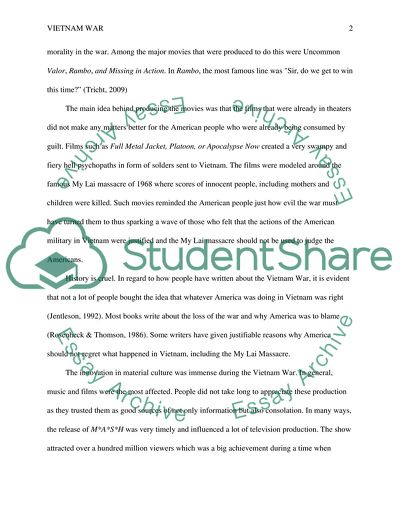Cite this document
(The Impacts of the Vietnam War on American Culture Research Paper, n.d.)
The Impacts of the Vietnam War on American Culture Research Paper. Retrieved from https://studentshare.org/history/1860463-vietnam-war-final-paper
The Impacts of the Vietnam War on American Culture Research Paper. Retrieved from https://studentshare.org/history/1860463-vietnam-war-final-paper
(The Impacts of the Vietnam War on American Culture Research Paper)
The Impacts of the Vietnam War on American Culture Research Paper. https://studentshare.org/history/1860463-vietnam-war-final-paper.
The Impacts of the Vietnam War on American Culture Research Paper. https://studentshare.org/history/1860463-vietnam-war-final-paper.
“The Impacts of the Vietnam War on American Culture Research Paper”, n.d. https://studentshare.org/history/1860463-vietnam-war-final-paper.


